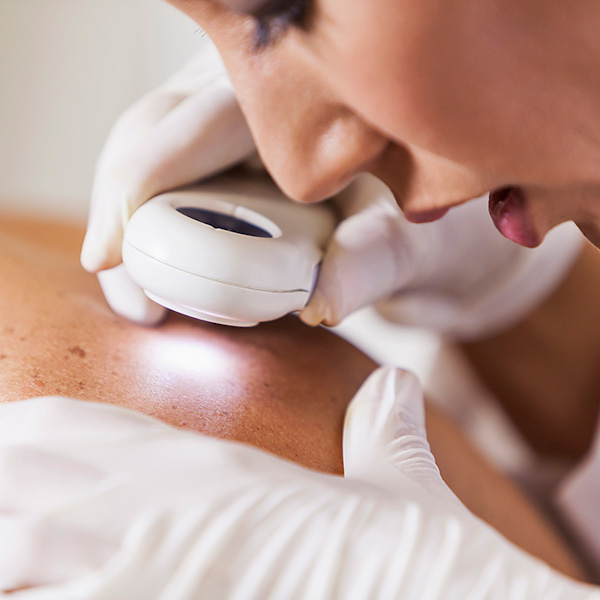Psoriasis
Overview and Facts about Psoriasis
Psoriasis is a common skin condition that causes cells to rapidly build up on the skin’s surface, resulting in scales and red patches that can be itchy or painful.
In most cases, psoriasis is chronic, but comes and goes in cycles. There is no cure for psoriasis, but its symptoms can be managed with lifestyle changes and medication.
There are several types of psoriasis, including:
- Erythrodermic psoriasis, which covers the body with a peeling, red rash
- Guttate psoriasis, which is triggered from a strep infection and mostly impacts children and young adults
- Inverse psoriasis, which causes lesions in the armpits and groin, under the breasts and around the genitals
- Nail psoriasis, which effects the fingernails and toenails
- Plaque psoriasis, which can develop anywhere on the body
- Psoriatic arthritis, which combines the inflamed skin with painful joints
- Pustular psoriasis, which causes pus-filled blisters to form in patches or on the hands, feet or fingers
Signs and Symptoms of Psoriasis
The symptoms of psoriasis vary depending on the type and severity of the skin condition. Common signs of psoriasis include:
- Dry, cracked skin
- Itching, burning or sore skin
- Nails that become thick, pitted or ridged
- Red patches with thick, silvery scales on the skin
- Stiff, swollen joints
Patients may experience widespread psoriasis or just a few small spots that resemble dandruff.
Symptoms of this dermatology condition often go through cycles or may worsen when exposed to certain triggers, such as infections, injury, stress and vitamin D deficiency.
Causes and Risk Factors of Psoriasis
Although the underlying causes of psoriasis are unknown, the condition is related to the immune system, which mistakenly attacks healthy skin cells, increasing the speed of their life cycle. This causes skin cells to build up on the surface of the skin, forming scales.
Risk factors that make the condition more likely include:
- A family history of psoriasis
- Infections
- Obesity
- Smoking
- Stress
Diagnosis
Tests and Diagnosis of Psoriasis
Psoriasis is diagnosed after a physical examination, symptom review and visual inspection of the skin. In rare cases where there may be another cause, the doctor may recommend a skin biopsy.
Treatment and Care of Psoriasis
Psoriasis has no cure, but treatment can reduce inflammation. In mild to moderate cases, topical treatments decrease breakouts and help the skin clear. The doctor may recommend:
- A topical corticosteroid to reduce inflammation
- Coal tar to address scaling, itching and inflammation
- Moisturizers to reduce itching and dryness
- Salicylic acid to reduce dead skin cells and scaling
- Topical retinoid or calcineurin inhibitor to decrease inflammation
- Vitamin D analogue or anthralin to slow skin cell growth
In moderate to severe cases, these topical agents may be paired with light therapy, which uses either natural or artificial light to slow cellular turnover and increase vitamin D.
In the most severe cases, oral or injected medications may be necessary. This may include retinoids, methotrexate, cyclosporine or biologics.
Some of these medications suppress the immune system and may not be right for all patients.

Request an Appointment
Loyola Medicine is nationally recognized for its expertise in diagnosing and treating a broad range of skin conditions and providing integrated services for the complete care of your skin. Schedule an appointment with a Loyola Medicine dermatologist today.
Schedule a Telehealth Appointment
